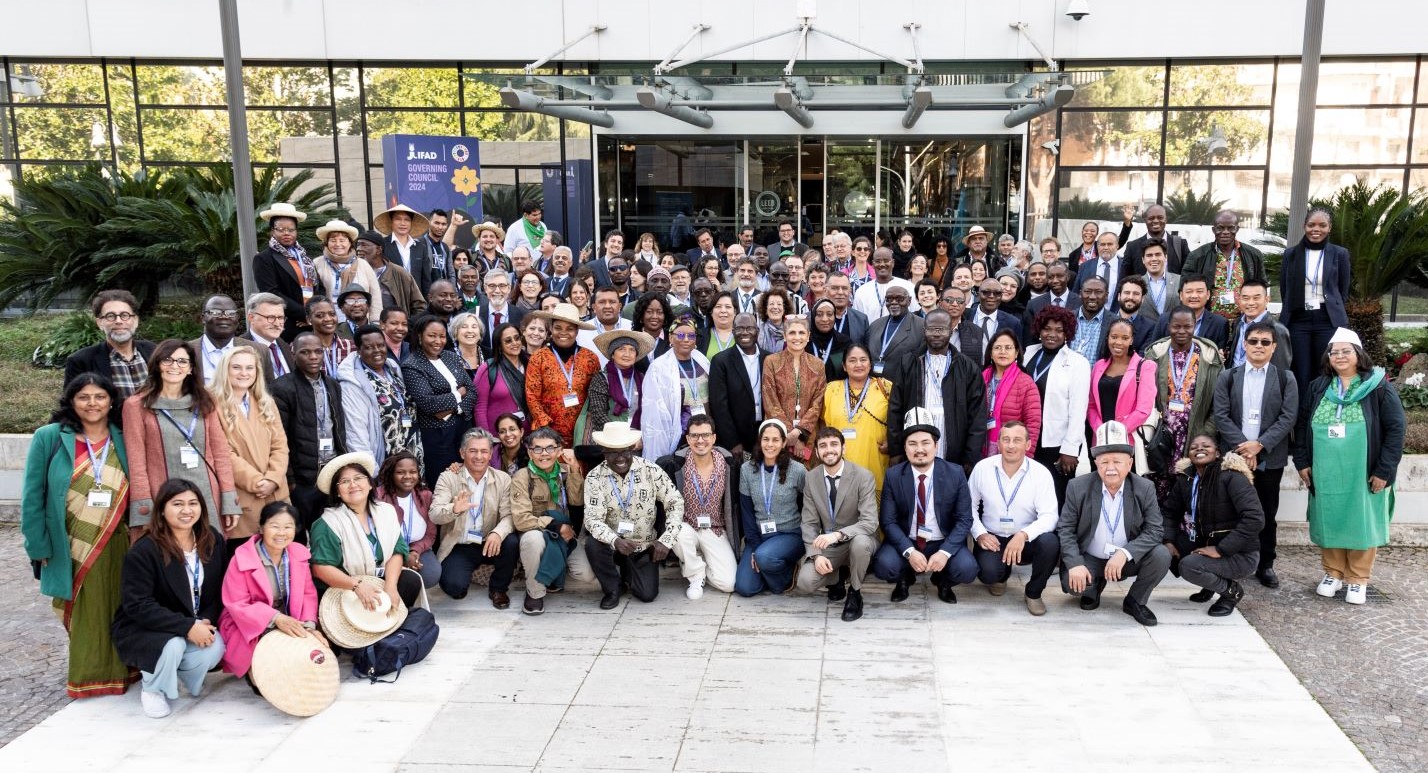Twenty years on from the first Farmers’ Forum, four farming leaders weigh in
IFAD Asset Request Portlet
Asset Publisher
Twenty years on from the first Farmers’ Forum, four farming leaders weigh in
Estimated reading time: 3 minutes
Every four years in Rome, the global meeting of the Farmers’ Forum sees millions of small-scale producers represented on the world stage as farmers’ organizations gather at IFAD’s headquarters. The Forum allows farmers to have their say on IFAD’s operations, strengthen collaboration and discuss policy.
At the eighth global meeting, we asked four farmers’ organization leaders from around the world about current challenges, new developments and their hopes for the future.

“Farmers’ organizations are service providers, not just recipients.” – Maria Elena Rebagay, Asian Farmers’ Association, Philippines
This is my third Farmers’ Forum and I'm happy to see progress made on issues raised in the past. In the Asia-Pacific region, we are proving that farmers' organization are effective service providers, not just recipients.
Young people have a lot of potential to improve productivity and sales with digital technology. But our biggest concern is attracting them to agriculture because they lack the resources to do so, including access to capital and natural resources.
Farmers are also greatly affected by climate challenges. But we are not just victims – we are also the first people to respond. We need to work together with IFAD so that we can provide services to our members and build more climate-resilient food systems. This must include expanding access to climate finance.

“Farmers’ organizations speak the language of farmers.” – Abbas Milhem, Palestinian Farmers’ Union (PFU), Palestine
In Palestine, the agriculture sector and food security are under threat due to the ongoing conflict and blocked access to crucial farming resources, like water and land. To be food secure, Palestine needs independent food production, and it needs peace.
The PFU promotes smart agriculture techniques, like hydroponics, among our members. These allow farmers to minimize production costs, enhance yields and increase profits.
Farmers’ organizations work for farmers’ benefit, ensuring their rights are reflected in agricultural policies and legislations. By operating in remote areas where farmers live but where governments are unable to reach, farmers’ organizations help better develop the agricultural sector.
Without farmers’ organizations, farmers have no umbrella, no compass, no voice. Farmers’ organizations speak the language of farmers, representing their interests and defending their rights.

“Every farmer is worried about climate change.” – Anastasia Musa, Value Chain Development Programme (VCDP) Youth Network, Nigeria
What excites my members is new technologies. These encourage youth and women to get into agriculture and to see it as a business venture that they can make a living out of. Women in particular struggle to access to finance and do not feel empowered to network. We want to show them that they can use it so that more is entrusted into them.
Every farmer is worried about climate change – either they’re experiencing drought or they’re experiencing flooding – and this really affects production.
What we need most right now is training, especially for young people, so they have the confidence to enter the agriculture sector. We also need to strengthen value chains, which in turn creates jobs and increase incomes.

“We have shown that family livestock farms can be sustainable.” – Fernando López, Confederation of Family Producer Organizations of the Expanded Mercosur (COPROFAM), Uruguay
Small-scale farmers in Uruguay need three things to continue producing food: targeted public policies, support to tackle climate change, and rural development.
In the past three years, drought has impacted Uruguay with many losses. Smaller harvests, higher costs, and problems with access to water have lowered incomes. With the climate changing rapidly, and extreme weather event becoming more frequent, producers face greater risks.
Our organization has worked with a lot of small-scale livestock farms on management practices, and we've found one thing is clear: it's possible to increase income while protecting the natural environment. We have shown that family livestock farms can be sustainable.
-
These interviews have been adapted for length and clarity. All photos ©IFAD/Cristian Gennari.
Publication date: 20 February 2024